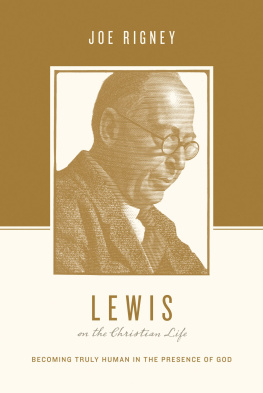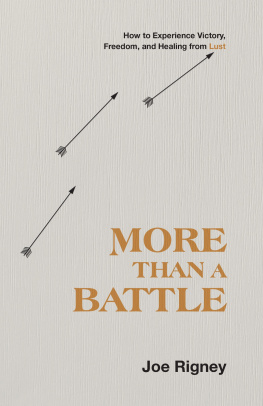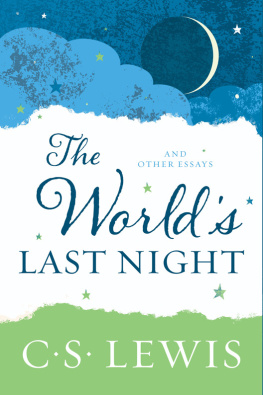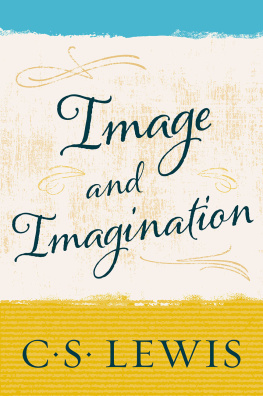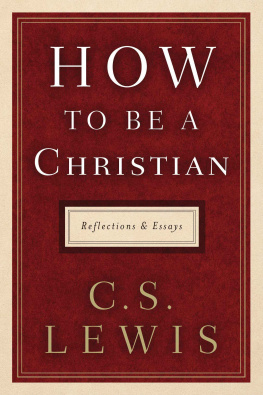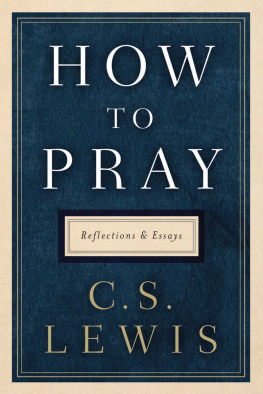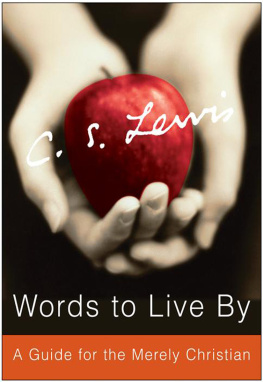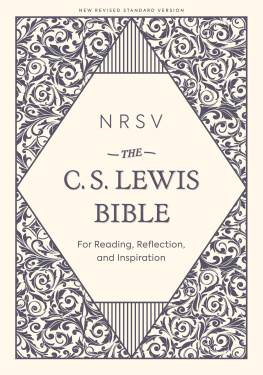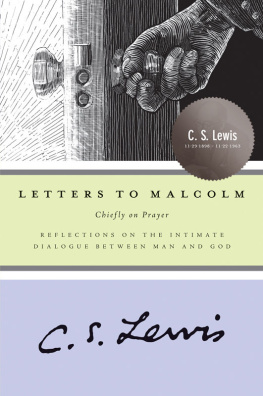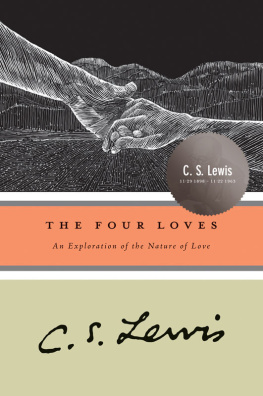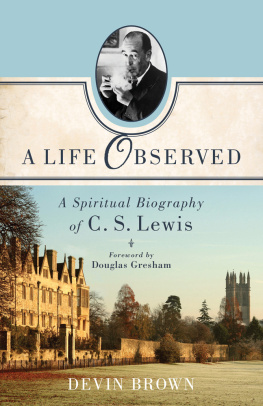Table of Contents
Landmarks
Chapter 13
Affection, Friendship, and Eros
In The Screwtape Letters , Wormwoods patient has three primary relationships: with his mother, with his friends, and with his girlfriend. Each of these relationships corresponds to one of the natural loves: affection, or familial love; friendship; and Eros, or romantic love. The relationships built on these loves make up a great part of our lives, including both our happiness and our virtue. They are the context in which God grows us into true persons as we learn to love God and neighbor in the proper ways. Throughout his writings, Lewis devoted significant effort to understanding the natural loves. The present chapter will take each love in turn, exploring what it is and how it goes wrong. In the next, we will then revisit each of the loves to show how divine love reorients and restores them to their appropriate place in the Christian life.
Gift - Love and Need - Love
In his book The Four Loves , Lewis begins by making two crucial distinctions about love. First, he distinguishes between gift - love and need -love. Gift-love is rooted in the love of God himself in his On the human level, this is the love that sacrifices for the good of others, whether or not we gain any direct benefit. On the other hand, need-love , such as the impulse that sends a lonely child running to his mothers arms, is the son of Poverty. We feel need - love when we become aware of our helplessness, emptiness, and loneliness. It is the recognition of our true nature as creatures who need others physically, emotionally, and intellectually. Lewis is careful to note that need - love is not mere selfishness (though it may become selfish). Given our nature, it is right for us to feel that we need other people (and ultimately God) in all kinds of ways.
Lewis makes this first distinction in order to introduce a second one: the distinction between two kinds of nearness to God. On the one hand, there is the kind of nearness to God that we explored in chapters 2 and 11. This is the nearness of approach is an increasing nearness of union with God in will. It is a willed imitation of God, a conformity of our actions and desires to his actions and desires, expressed in particular by Christ in his incarnate life. Lewis points out that these two types of nearness need not coincide. A fallen archangel may be nearer to God by likeness than a poor fishermanthe bent angel is an invisible and powerful spirit of great intelligence. But the poor fisherman may be nearer to God in terms of approach since, unlike the Devil, he seeks to love God with his heart, mind, and strength, however feeble he may be.
Erotic love, familial love, even love of friend and country can demand an absolute allegiance that in essence becomes a pretension to deity; these loves can tend to become gods and thereby become idolatrous, demonic, and destructive.
For Lewis, this means that the real threat to the Christian life comes from the natural loves in their highest and best forms. It is when they are most like God (in terms of nearness by likeness) that they are their most dangerous. Our boundless gift -loves, filled with energy and vitality and desire for the good of the beloved, are godlike in their splendor. But it is just because they are so godlike that we may come to mistake Like for Same. In such moments, we may render to a creature what is due only to God, with disastrous effects.
We may give our human loves the unconditional allegiance which we owe only to God. Then they become gods: then they become demons. Then they will destroy us, and also destroy themselves. For natural loves that are allowed to become gods do not remain loves. They are still called so, but can become in fact complicated forms of hatred.
In light of this fundamental principle, we are now ready to examine the natural loves and their corruptions. Well begin with affection.
Affection
Affection is family love and, by extension, love for anyone with whom we are familiar, whether kin to us or not. Our first experience of it is in the homeparent to child and child to parent. On the childs side, this love is a
From the relation of parent and child, affection broadens out. It is the humblest and least discriminating of the natural loves. We choose our friends and lovers, but affection embraces whoever happens to be near to usstarting with our families, of course, but including the old man next door, the ugly cat, the awkward boy down the street. Our affection for them is at least partially due to their proximity to us. An outsider might reject them, but to us, they are old so -and-so. Affection reveals itself when we feel the need to defend others because they are in some sense ours. No one can talk that way about my brother. Even a bully may defend one of his regular victims who is mocked by someone from another school.
Affection is humble and modest. It puts on no airs and makes no boasts. When Lewis describes it, he uses images of comfort, warmth, softness, and privacy: soft slippers, old clothes, old jokes, the thump of a sleepy dogs tail on the kitchen floor.
But, like all natural loves, affection may also become Gods rival.
Corrupted Affection: The Tyranny of Possessiveness
The ways in which familial love can go wrong are legion. The first and most fundamental is that affection may become unduly possessive. We love our family members because they are, in some sense, ours. But they are ours only in some sense. Yet some sense can easily expand until it becomes every sense. Screwtape encourages Wormwood to cultivate the patients sense of ownership in his life. The devils introduce a confusion in our use of the word my .
We teach them not to notice the different senses of the possessive pronounthe finely graded differences that run from my boots through my dog, my servant, my wife, my father, my master and my country, to my God. They can be taught to reduce all these senses to that of my boots, the my of ownership.
Mrs. Fidget oppressed her family with affection when she was alive. She wearied her husband, embittered her sons, and so protected her daughter that she robbed her of almost all joy. Even the dog felt her tyranny. She lived for her familydoing all the washing (though she did it badly and they begged her not to), cooking them hot lunches (despite her familys desire for cold ones), made them clothes (which they felt obligated to wear, no matter how ugly), and cared for their health (especially the delicate daughter who was caressed and babied to within an inch of her life). All of this help was a tyranny to her family, who were forced to do things for her to help her to do things for them which they didnt want done.
Mrs. Fidgets maternal instinct, like Pams in The Great Divorce , was uncontrolled and fierce and monomaniac. Without Gods hand on the rein, this natural love had set up on its own and made itself into a false god. And as we saw before, one of Lewiss fundamental principles is that loves which set themselves up as gods eventually become demons. Left to its natural bent affection becomes in the end greedy, naggingly solicitous, jealousy exacting, timorous.
In addition, when we set up a natural love as an idol, we can no longer see ourselves rightly. Pam believes that she lived for Michael, that she sacrificed for him, that she gave up [her] whole life. This she calls love. But it was actually a very complicated form of hatred.
We see this in her demand for Michael. I want my boy, and I mean to have him. He is mine, do you understand? Mine, mine, mine, for ever and ever. This possessiveness is the demonic form of affection. Such idolatry, justified in the name of mother -love, appears to be an excess of maternal affection. But, according to Lewis, it is nothing of the sort.
Excess of love, did ye say? There was no excess, there was defect. She loved her son too little, not too much. If she had loved him more thered be no difficulty. I do not know how her affair will end. But it may well be that at this moment shes demanding to have him down with her in Hell. That kind is sometimes perfectly ready to plunge the soul they say they love in endless misery if only they can still in some fashion possess it.

